9 Sep 2014 | Bahrain, News and features, Politics and Society, United Kingdom
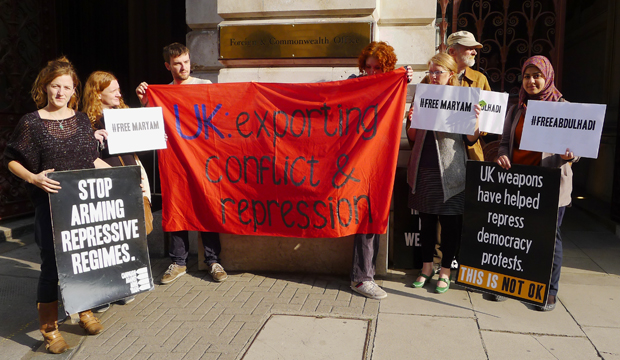
Protest for the release of Bahraini human rights activists at the British Foreign and Commonwealth Office
Today a protest was held outside the Foreign and Commonwealth Office calling for the UK government to condemn the regime in Bahrain and support the release of human rights campaigner Maryam Alkhawaja and her father, Abdulhadi Alkhawaja, who has been in prison in the country since 2011.
The UK has had a close relationship with Bahrain’s government, supplying them with weapons in the past. The British government has failed to speak about human rights violations in the country. The protest was aimed at foreign office staff on their way to work to raise awareness of the issue and spark internal debate.
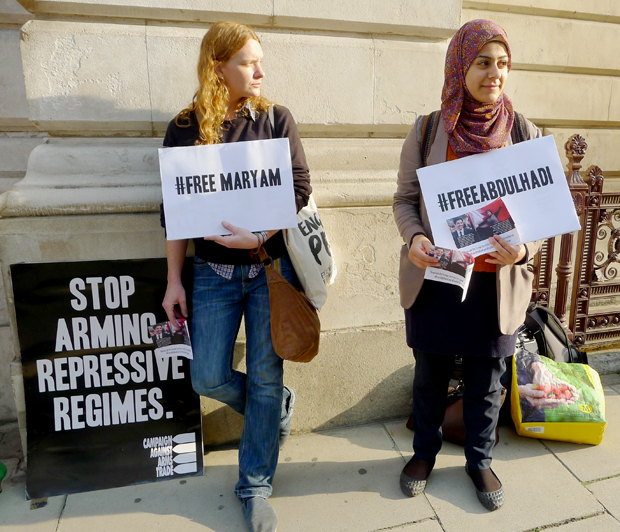
Maryam Alkhawaja was detained in Bahrain at the end of last month when she travelled to the country to visit her father, a Bahraini human rights campaigner and co-founder of the Bahrain Centre for Human Rights (BCHR), which won the 2012 Index Freedom of Expression Award for Advocacy; he is serving a life sentence for terrorism offences and began a hunger strike two weeks ago.
Sign the Free Maryam petition here
This article was posted on 9 Sept 2014 at indexoncensorship.org
1 Sep 2014 | Bahrain, Middle East and North Africa, News and features
UPDATE 4 September 17:22: Maryam Alkhawaja has a court date scheduled for 9am on Saturday 6 September, according to Travis Brimhall, head of the international office at the Bahrain Center for Human Rights.
Prominent human rights activist Maryam Alkhawaja has been jailed in Bahrain. She was detained at Bahrain International Airport on Friday as she tried to enter the country, and has yet to meet with her lawyer.
Alkhawaja, a dual Danish-Bahraini citizen, had her Danish passport confiscated and was told she no longer held Bahraini citizenship. She was also barred from using her phone or contacting her family, according to the Gulf Centre for Human Rights (GCHR), the organisation of which she is co-director. GCHR also reported that she was interrogated on charges of assaulting and injuring police officers, while lawyer Mohamed Al Jishi said he was not allowed to speak to his client before she was questioned. She is currently held in Isa Town women’s prison.
Alkhawaja was travelling to see her imprisoned father, who last week started a hunger strike. Abdulhadi Alkhawaja is a Bahraini human rights campaigner who co-founded the Bahrain Centre for Human Rights (BCHR), which won the 2012 Index Freedom of Expression Award for Advocacy. He was sentenced to life in prison on terrorism charges following pro-democracy protests that swept the country in 2011. Abdulhadi and his daughters Maryam and Zainab are outspoken critics of human rights violations in the constitutional monarchy, which is categorised as “not free” by Freedom House.
The case first gained attention after Alkhawaja tweeted about being detained on Friday, and an unnamed person close to the family continues to provide updates through her Twitter account. On Saturday, the account reported that she is also facing charges of insulting the king of Bahrain and over an anti-impunity campaign she was involved with in November 2013.
Human Rights Watch called the arrest “outrageous”, while GCHR has labelled the charges “fabricated” and has called on the international community to put pressure on Bahraini authorities to release father and daughter. The Danish Ministry of Foreign Affairs is sending a representative to Bahrain to provide support. Foreign Minister Martin Lidegaard tweeted on Sunday that a “solution must be found in Al-Khawaja case” and that he has raised the issue with the European Union.
This comes as the Supreme Court of Appeal in Bahrain on Sunday upheld a 10-year sentence on photographer Ahmad Humaidan. He was convicted over an attack on a police station in 2012, but human rights groups believe the case against him is connected to his coverage of pro-democracy demonstrations.
This article was posted on 1 Sept 2014 at indexoncensorship.org
8 Mar 2014 | Azerbaijan News, News and features
International Women’s Day is a day to remember violence against women, the education gap, the wage gap, online harassment, everyday sexism, the intersection between sexism and other -isms, and a whole host of other issues to make us realise we’ve still got a long way to go. A day to demand continued progress, and a day to pledge to work to achieve it.
But it is also a day to celebrate. To appreciate the fantastic achievements that are made every day, everywhere, by women from all walks of life. It’s a day to be grateful to the women who dedicate their lives to fighting on the front lines to protect rights vital to us all. We want to shine the spotlight on women who have stood up for freedom of expression when it’s not the easy or popular thing to do, against fierce opposition and often at great personal risk. The following eight women have done just that. We know there are many, many more. Tell us about your female free speech hero in the comments or tweet us @IndexCensorship.
Meltem Arikan — Turkey
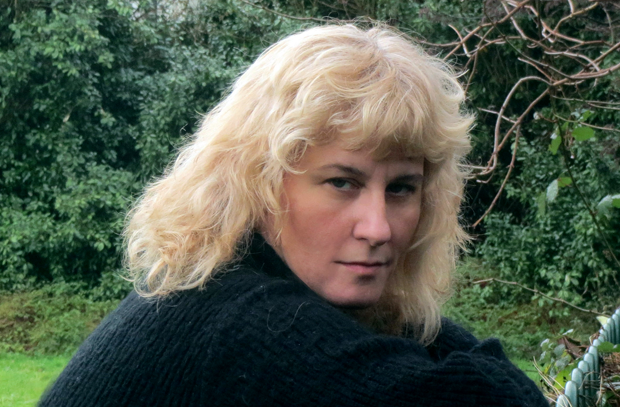
Meltem Arikan
Arikan is a writer who has long used her work to challenge patriarchal structures in society. He latest play “Mi Minor” was staged in Istanbul from December 2012 to April 2013, and told the story of a pianist who used social media to challenge the regime. Only a few months after, the Gezi Park protests broke out in Turkey. What started as an environmental demonstration quickly turned into a platform for the public to express their general dissatisfaction with the authorities — and social media played a huge role. Arikan was one of many to join in the Gezi Park movement, and has written a powerful personal account of her experiences. But a prominent name in Turkey, she was accused of being an organiser behind the protests, and faced a torrent of online abuse from government supporters. She was forced to flee, now living in exile in the UK.
I realised that we were surrounded, imprisoned in our own home and prevented from expressing ourselves freely.
Anabel Hernández — Mexico

Anabel Hernández (Image: YouTube)
Hernández is a Mexican journalist known for her investigative reporting on the links between the country’s notorious drug cartels, government officials and the police. Following the publication of her book Los Señores del Narco (Narcoland), she received so many death threats that she was assigned round-the-clock protection. She can tell of opening the door to her home only to find a decapitated animal in front of her. Before Christmas, armed men arrived in her neighbourhood, disabled the security cameras and went to several houses looking for her. She was not at home, but one of her bodyguards was attacked and it was made clear that the visit — from people first identifying themselves as members of the police, then as Zetas — was because of her writing.
Many of these murders of my colleagues have been hidden away, surrounded by silence – they received a threat, and told no one; no one knew what was happening…We have to make these threats public. We have to challenge the authorities to protect our press by making every threat public – so they have no excuse.
Amira Osman — Sudan
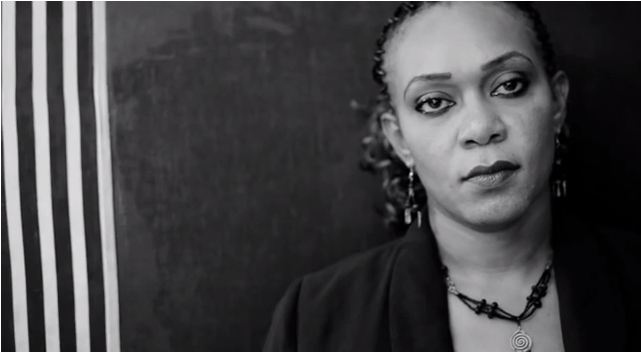
Amira Osman (Image: YouTube)
Amira Osman, a Sudanese engineer and women’s rights activist was last year arrested under the country’s draconian public order act, for refusing to pull up her headscarf. She was tried for “indecent conduct” under Article 152 of the Sudanese penal code, an offence potentially punishable by flogging. Osman used her case raise awareness around the problems of the public order law. She recorded a powerful video, calling on people to join her at the courthouse, and “put the Public Order Law on trial”. Her legal team has challenged the constitutionality of the law, and the trial as been postponed for the time being.
This case is not my own, it is a cause of all the Sudanese people who are being humiliated in their country, and their sisters, mothers, daughters, and colleagues are being flogged.
Fadiamata Walet Oumar — Mali
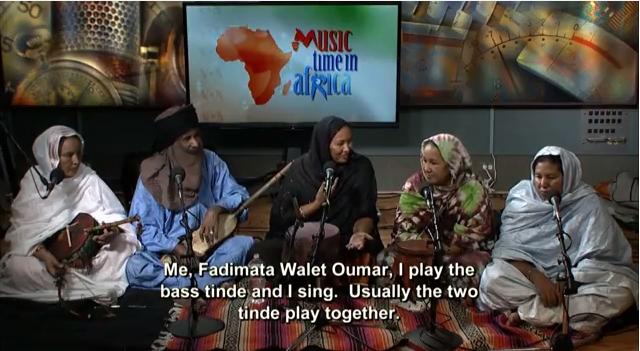
Fadiamata Walet Oumar with her band Tartit (Image: YouTube)
Fadiamata Walet Oumar is a Tuareg musician from Mali. She is the lead singer and founder of Tartit, the most famous band in the world performing traditional Tuareg music. The group work to preserve a culture threatened by the conflict and instability in northern Mali. Ansar Dine, an islamists rebel group, has imposed one of the most extreme interpretations of sharia law in the areas they control, including a music ban. Oumar believes this is because news and information is being disseminated through music. She fled to a refugee camp in Burkina Faso, where she has continued performing — taking care to hide her identity, so family in Mali would not be targeted over it. She also works with an organisation promoting women’s rights.
Music plays an important role in the life of Tuareg women. Our music gives women liberty…Freedom of expression is the most important thing in the world, and music is a part of freedom. If we don’t have freedom of expression, how can you genuinely have music?
Khadija Ismayilova — Azerbaijan

Khadija Ismayilova
Ismayilova is an award-winning Azerbaijani journalist, working with Radio Free Europe/Radio Liberty. She is know for her investigative reporting on corruption connected to the country’s president Ilham Aliyev. Azerbaijan has a notoriously poor record on human rights, including press freedom, and Ismayilova has been repeatedly targeted over her work. She was blackmailed with images of an intimate nature of her and her boyfriend, with the message to stop “behaving improperly”. This February, she was taken in for questioning by the general prosecutor several times, accused of handing over state secrets because she had met with visitors from the US Senate. In light of this, she posted a powerful message on her Facebook profile, pleading for international support in the event of he arrest.
WHEN MY CASE IS CONCERNED, if you can, please support by standing for freedom of speech and freedom of privacy in this country as loudly as possible. Otherwise, I rather prefer you not to act at all.
Jillian York — US
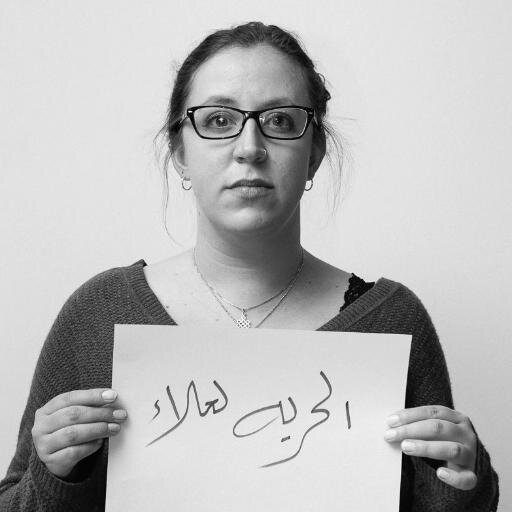
Jillian York (Image: Jillian C. York/Twitter)
Jillian York is a writer and activist, and Director of Freedom of Expression at the Electronic Frontier Foundation (EFF). She is a passionate advocate of freedom of expression in the digital age, and has spoken and written extensively on the topic. She is also a fierce critic of the mass surveillance undertaken by the NSA and other governments and government agencies. The EFF was one of the early organisers of The Day We Fight Back, a recent world-wide online campaign calling for new laws to curtail mass surveillance.
Dissent is an essential element to a free society and mass surveillance without due process — whether undertaken by the government of Bahrain, Russia, the US, or anywhere in between — threatens to stifle and smother that dissent, leaving in its wake a populace cowed by fear.
Cao Shunli — China
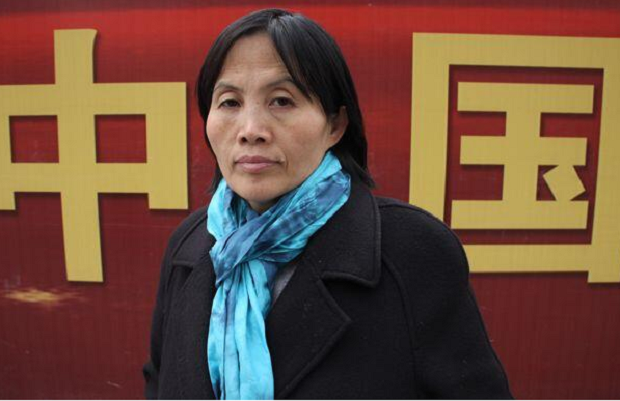
Cao Shunli (Image: Pablo M. Díez/Twitter)
Shunli is an human rights activist who has long campaigned for the right to increased citizens input into China’s Universal Periodic Review — the UN review of a country’s human rights record — and other human rights reports. Among other things, she took part in a two-month sit-in outside the Foreign Ministry. She has been targeted by authorities on a number of occasions over her activism, including being sent to a labour camp on at least two occasions. In September, she went missing after authorities stopped her from attending a human rights conference in Geneva. Only in October was she formally arrested, and charged for “picking quarrels and promoting troubles”. She has been detained ever since. The latest news is that she is seriously ill, and being denied medical treatment.
The SHRAP [State Human Rights Action Plan, released in 2012] hasn’t reached the UN standard to include vulnerable groups. The SHRAP also has avoided sensitive issue of human rights in China. It is actually to support the suppression of petitions, and to encourage corruption.
Zainab Al Khawaja — Bahrain
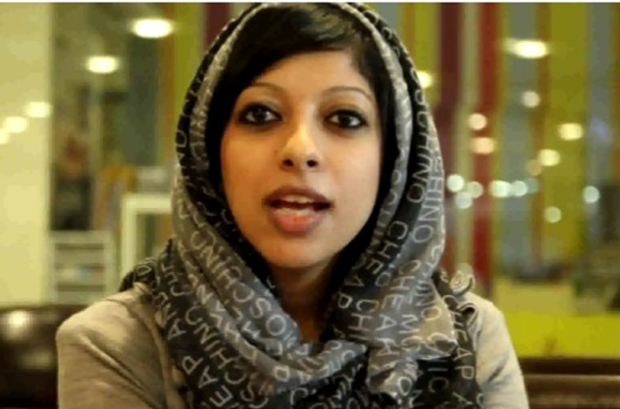
Zainab Al Khawaja
Al Khawaja is a Bahraini human rights activist, who is one of the leading figures in the Gulf kingdom’s ongoing pro-democracy movement. She has brought international attention to human rights abuses and repression by the ruling royal family, among other things, through her Twitter account. She has also taken part in a number of protests, once being shot at close range with tear gas. Al Khawaja has been detained several times over the last few years, over “crimes” like allegedly tearing up a photo of King Hamad bin Isa Al Khalifa. She had been in jail for nearly a year when she was released in February, but she still faces trials over charges like “insulting a police officer”. She is the daughter of prominent human rights defender Abdulhadi Al Khawaja, who is currently serving a life sentence.
Being a political prisoner in Bahrain, I try to find a way to fight from within the fortress of the enemy, as Mandela describes it. Not long after I was placed in a cell with fourteen people—two of whom are convicted murderers—I was handed the orange prison uniform. I knew I could not wear the uniform without having to swallow a little of my dignity. Refusing to wear the convicts’ clothes because I have not committed a crime, that was my small version of civil disobedience.
This article was posted on March 8, 2014 at indexoncensorship.org










